The concept of solar-powered cars tantalizes enthusiasts and environmentalists alike. Imagine a vehicle that harnesses sunlight to operate, drastically reducing reliance on fossil fuels and promoting clean energy.
However, despite advancements in solar technology and the increasing popularity of electric vehicles (EVs), fully solar-powered cars remain elusive. This article explores the reasons behind the lack of solar-powered cars, considering the science, engineering challenges, and current market trends.
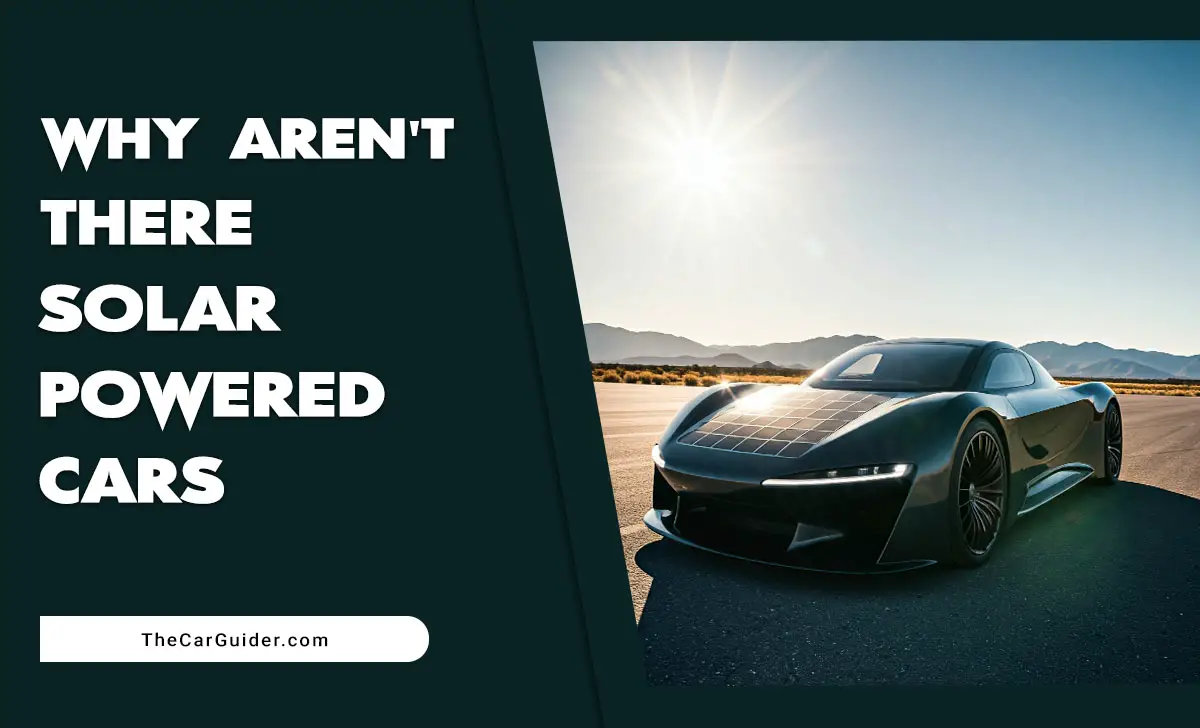
key Takeaways:
- Solar-powered cars face challenges like limited solar panel surface area, low efficiency (15-20%), and energy storage inefficiencies.
- Current models, like Sono Sion and Aptera, integrate solar tech but rely on conventional charging.
- Future advancements in solar and battery technologies could make fully solar-powered cars feasible.
The Basics Of Solar Power And Electric Vehicles
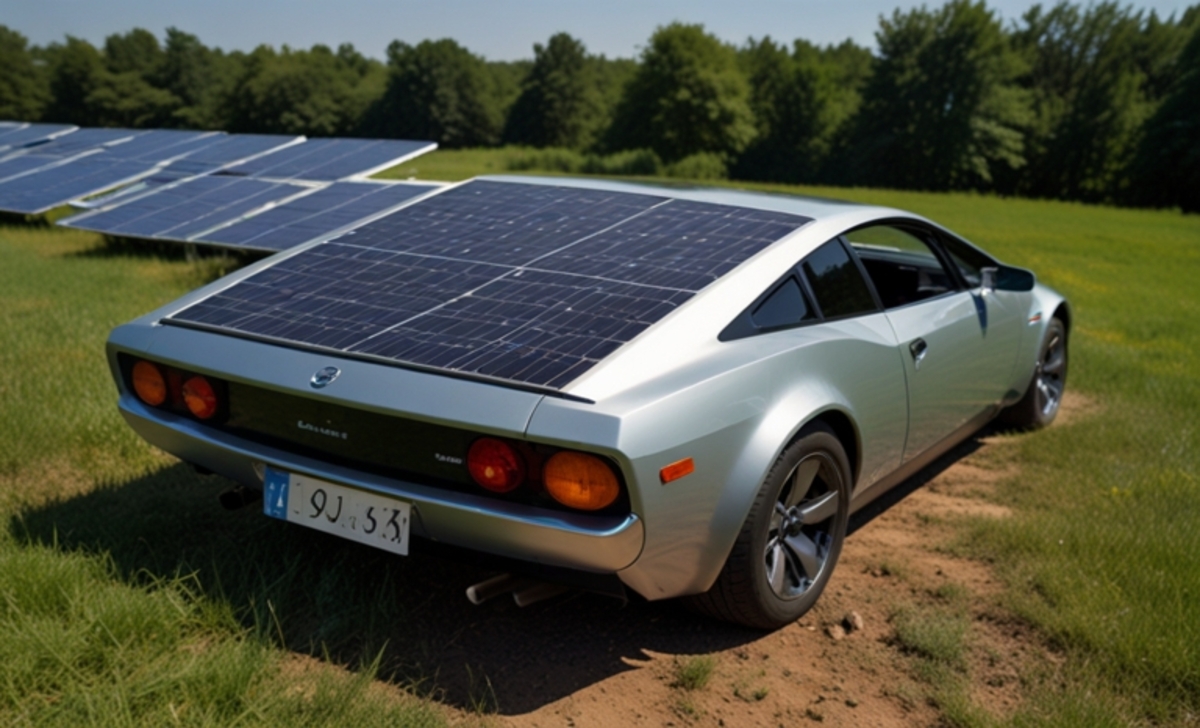
Solar power is generated through photovoltaic cells, commonly known as solar cells, which convert sunlight into electricity. Solar panels, made up of multiple solar cells, capture solar energy and transform it into usable electricity. Electric vehicles rely on electric motors powered by batteries, offering a cleaner alternative to traditional gasoline-powered cars. However, the integration of solar technology into electric cars poses unique challenges.
Why Isn’t There A Solar Powered Car?-Limitations Of Solar Panels On Vehicles

1. Insufficient Surface Area For Solar Energy Capture
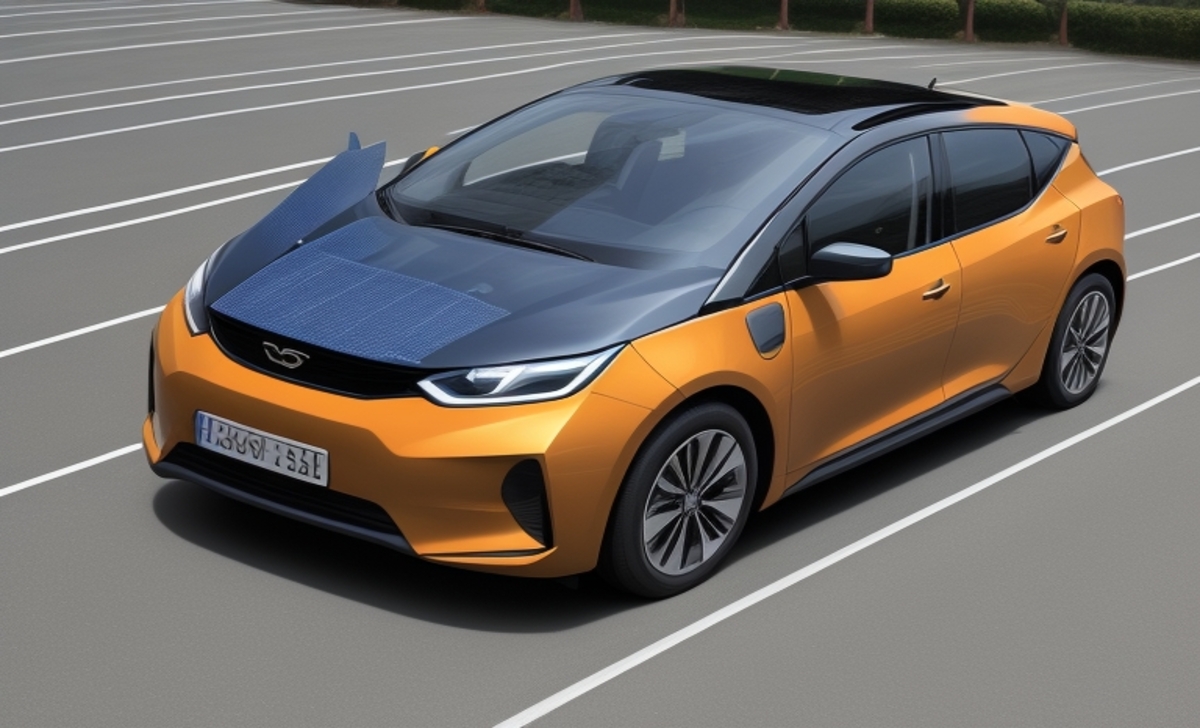
The primary limitation of a solar-powered car lies in the available surface area for solar panels. Most cars can only accommodate a small solar panel roof, which drastically limits the amount of sunlight they can capture.
For instance, a typical electric car may only have 10 to 25 square feet of roof space. This area is simply not enough to generate the energy required for consistent vehicle operation.
Even if a solar car’s panels could theoretically generate enough power under direct sunlight, the reality of variable weather conditions, such as cloud cover and rainy days, greatly diminishes their efficiency. Most solar panel efficiency rates hover around 15-20% in practical applications, which means that only a fraction of the sun’s energy is converted into usable electricity.
2. Energy Conversion And Storage Challenges
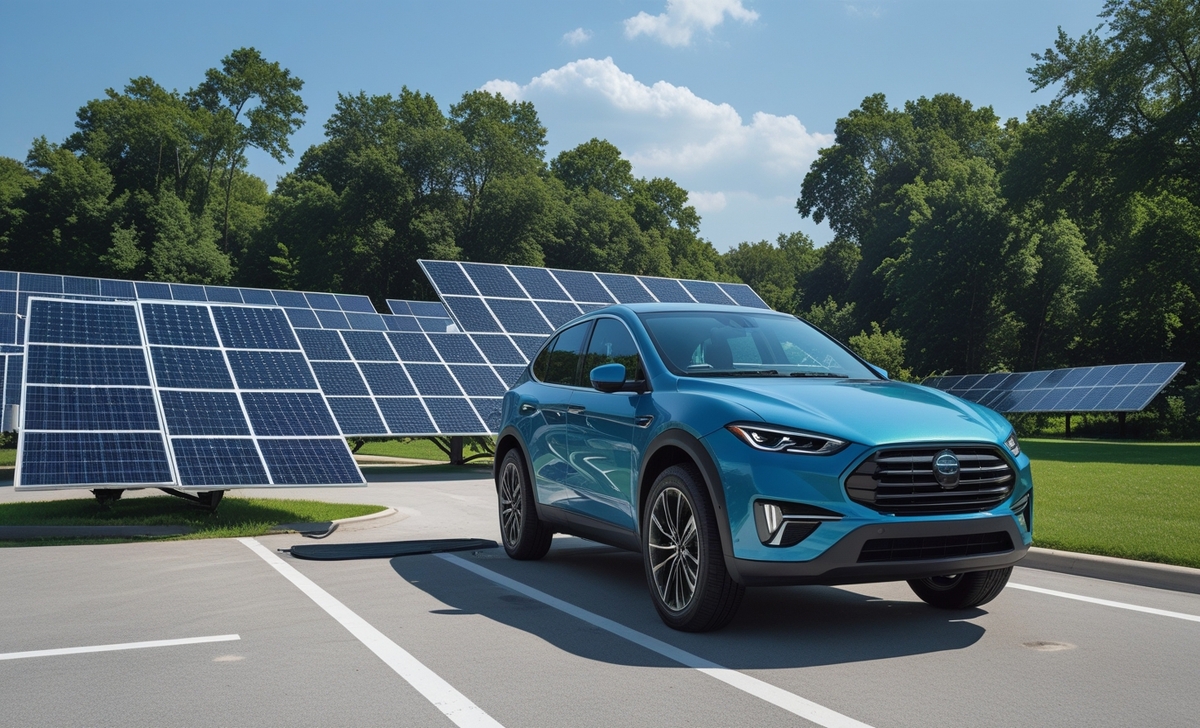
While solar energy generation is impressive, the process of converting this energy into electricity, storing it in batteries, and then using it to power an electric motor introduces multiple layers of inefficiency. Solar charging facilities may use larger solar panels to produce adequate power, but when scaled down to fit a vehicle, the output is insufficient for regular driving needs.
For example, even under optimal conditions, a solar-powered vehicle might require several hours of sunlight to accumulate enough energy to charge its battery significantly. The energy losses during these conversions mean that solar-powered vehicles cannot rely solely on sunlight to operate, necessitating backup power from the electric grid or traditional charging stations.
Current Innovations And Efforts In Solar Vehicle Development
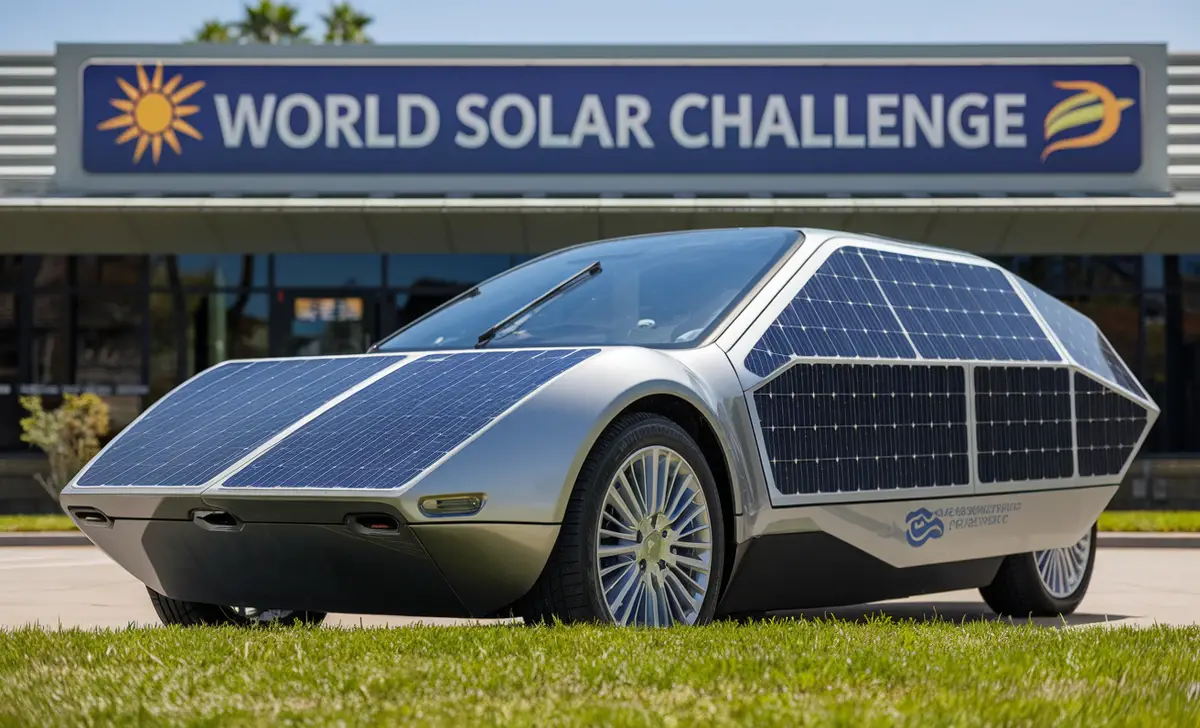
Despite these challenges, some car manufacturers are actively exploring solar technology integration into their electric vehicles. Sono Motors is a notable example, producing the Sion, which features integrated solar panels that assist in powering the car’s electronic components, but not solely its driving capabilities.
Another company, Aptera Motors, has designed a solar EV that can generate enough solar energy to allow for daily driving without needing to plug into a charging station. The vehicle incorporates high-efficiency solar panels across its body, which can capture significant solar energy, but it still cannot operate entirely on solar power.
Moreover, events like the World Solar Challenge and American Solar Challenge promote innovations in solar vehicles. These competitions inspire engineers and enthusiasts to develop efficient solar cars, but the vehicles produced are often prototypes that do not transition to mass production for daily consumer use.
The Future Of Solar-Powered Cars
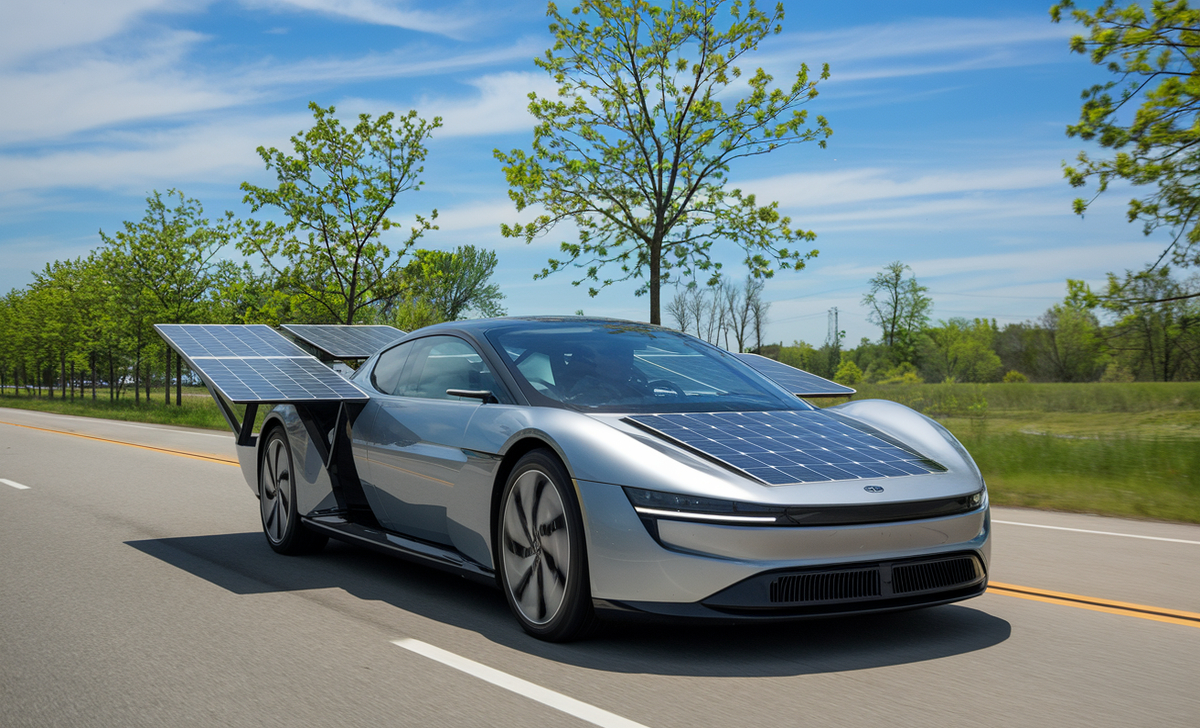
The potential for solar-powered cars exists, especially as solar technology continues to advance. As battery technology improves and solar panel efficiency increases, the dream of a practical solar-powered vehicle could become more feasible. Current trends indicate a shift toward renewable energy sources, as society seeks to reduce carbon dioxide emissions and combat climate change.
However, the reality remains that electric cars are currently the most viable option for reducing fossil fuel reliance. They offer the benefit of clean energy when charged from renewable sources and can significantly decrease fuel costs for consumers.
Conclusion
While solar-powered cars represent an appealing concept, the combination of insufficient solar panel efficiency, limited surface area, and energy conversion challenges make them impractical for widespread use.
Car manufacturers are making strides toward integrating solar technology into electric vehicles, but for now, traditional charging methods remain the most efficient and reliable way to power electric cars. As technology evolves, the dream of fully solar-powered vehicles may eventually become a reality, paving the way for a cleaner, more sustainable future.
FAQs
1.Can Solar Panels Power An Electric Vehicle?
While solar panels can generate some electricity for electric vehicles, the limited surface area on a car restricts their effectiveness, and they cannot provide enough energy for continuous operation.
2.What Is The Solar Panel Efficiency For Cars?
Current solar panels on vehicles generally operate at 15-20% efficiency, significantly less than the ideal 33% or higher that some advanced panels can achieve in controlled environments.
3.Are There Any Solar-Powered Cars On The Market?
Yes, companies like Sono Motors and Aptera Motors are developing solar-powered vehicles, but they still require conventional charging methods for adequate power.
4.How Long Would It Take To Charge An Electric Vehicle With Solar Panels?
Charging an electric vehicle solely with solar panels could take several hours to days, depending on sunlight availability and the vehicle’s battery size.
5.What Are Solar Charging Facilities?
Solar charging facilities are stations equipped with large solar panels that capture sunlight to generate electricity, which is then used to charge electric vehicles efficiently.
6.Can There Be A Solar-Powered Car?
Fully solar-powered cars are currently impractical due to limitations in solar panel technology, such as low efficiency and insufficient surface area on vehicles to capture enough sunlight. However, advancements in PV cells, solar systems, and solar battery technology may make solar-powered vehicles feasible in the future.
7.Why Isn’t Tesla Solar-Powered?
Tesla vehicles don’t rely solely on solar panel technology because the available solar roof space cannot generate enough electricity to power the car battery for continuous use. Instead, Tesla focuses on utilizing grid power and renewable sources, ensuring higher efficiency compared to current solar electric vehicle systems.
8.Will Solar Charge A Car?
Yes, solar charging stations can charge electric vehicles by converting sunlight into solar electricity. However, direct solar charging on a vehicle is limited, as the solar powered vehicle cannot harness sufficient energy compared to stationary setups. Events like the Bridgestone World Solar Challenge showcase innovations in solar vehicles, but these remain experimental.